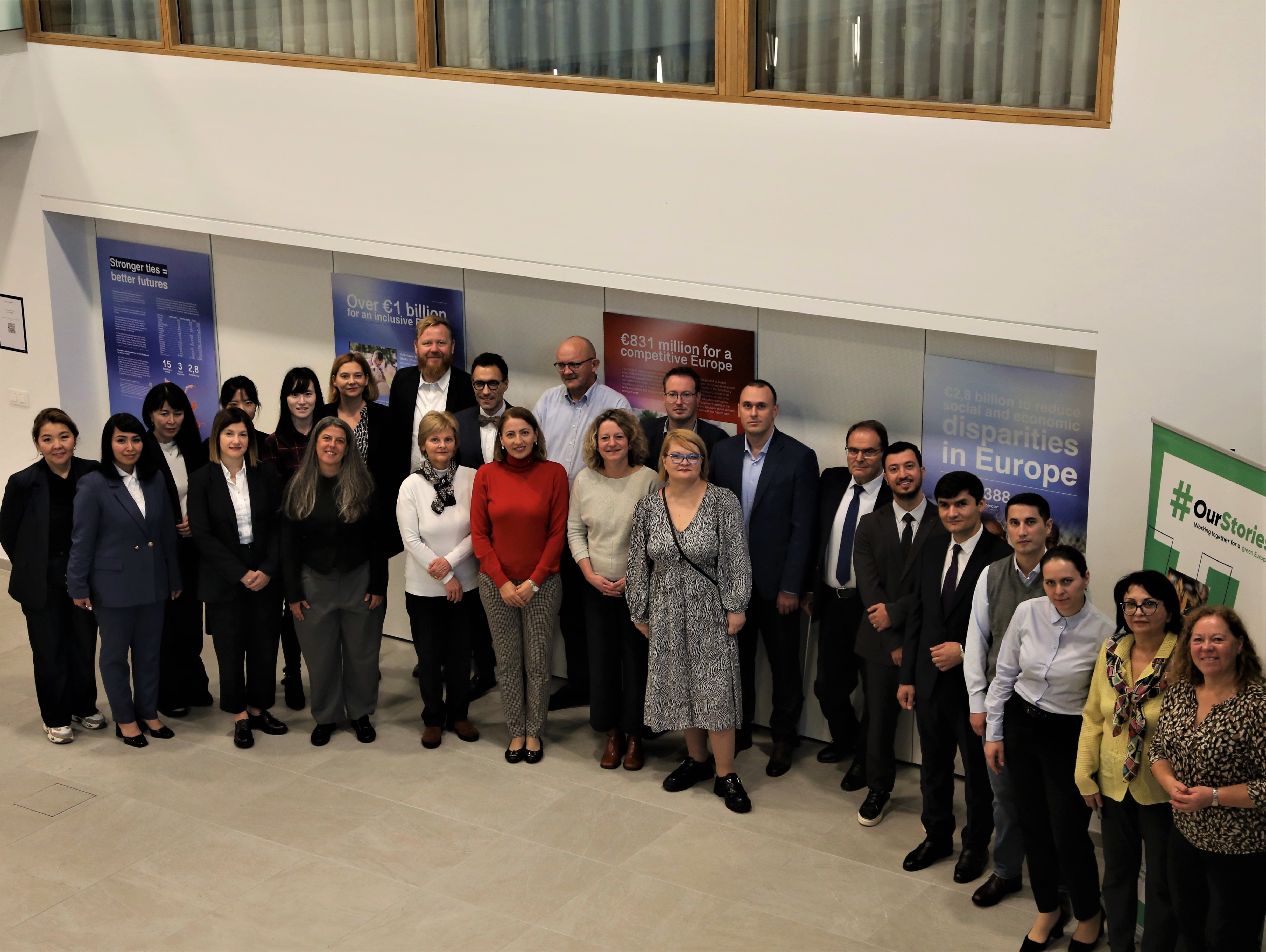
EFTA and UNECE host CPI workshop in Brussels

From 29 to 31 October 2024, EFTA and UNECE hosted a workshop on the utilisation and integration of new data sources for the Consumer Price Index at EFTA House in Brussels, in close cooperation with the Federal Statistical Office of Switzerland, Statistics Norway and Eurostat.
Over three days, 25 experts from all over the world shared their insights and experiences, while 13 experts joined the workshop online.
The Consumer Price Index (CPI) consists of a weighted average of the prices of various goods and services consumed by households, which on an aggregated level helps statisticians and other experts measure inflation in the economy over time. One of the key challenges in compiling the CPI is the collection of data, especially as the retail and other industries are constantly changing. Traditional methodologies have in some cases shown their weaknesses in exceptional economic circumstances, such as during the COVID-19 pandemic, making National Statistical Institutes (NSIs) aware of the need to adopt newer and more resilient methodologies for data collection.
The ever-changing global economy, combined with new advances in methodology and the introduction of the Classification of Individual Consumption According to Purpose (COICOP) 2018 and other updates to the classification of goods and services, make it both necessary and possible to ensure the availability of high-quality, reliable and comparable CPI data. Policy makers at national and international level depend on these statistical data to shape and monitor economic policy, as do academics to conduct their research, while the general public is also interested in the trends these numbers reflect.
During the workshop, experts from EFTA States, EU Member States, various international organisations and third countries shared their experiences and insights and learned from the presenters. They discussed new methods for collecting data, such as scanner data, administrative data and web scraping. They also looked at the opportunities these new methods provide, as well as the challenges associated with their implementation.
Such novel methodologies also change the way in which CPIs are compiled by NSIs. With a potentially massive volume of data available from scanner data and web scraping, careful consideration should be given to methodology when combining data from these methods of data collection in the CPI with data from more traditional data sources.
Another key challenge discussed was communication of the CPI. The CPI is fundamental to how experts and the general public evaluate the current state of the economy. It also informs the decisions of policy makers, for example in the field of monetary policy. Ensuring proper communication and that the needs of these various user groups are met is crucial to the mission of official statisticians around the world. Especially now that the data are becoming more granular as a result of COICOP 2018, it is important to make user groups aware of these changes and the opportunities they provide for their work, while also ensuring the proper implementation of these new standards in the NSIs themselves.
The workshop included group work to complement the presentations, allowing participants to share their ideas and think critically about the concepts discussed with a view to practical implementation.
Experts from Albania, Armenia, Azerbaijan, Belgium, Bosnia and Herzegovina, Burundi, Georgia, Iran, Japan, Kazakhstan, Republic of Korea, Kosovo, Kyrgyzstan, Moldova, Montenegro, Norway, Serbia, Switzerland, Tajikistan, Türkiye, Ukraine, Uzbekistan, Eurostat and UNECE attended the workshop in person or online. EFTA supported the participation of experts from its partner countries in Eastern Europe, the Caucasus and Central Asia financially. The workshop formed part of the 2024 EFTA Work Programme for Technical Cooperation in the Field of Statistics as approved by the EFTA Council in January 2024.
The EFTA Secretariat would like to thank the participants and speakers for their valuable contributions to the workshop.